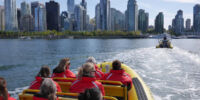7 Ways to Engage your Audience on Social
Social media is a great tool to connect with and inspire visitors. When you positively engage with people online about the remarkable experiences your business has to offer, you can have a direct impact on your overall business performance by combining your marketing efforts with social proof from past guests. By engaging and responding to conversations with potential or past visitors, you build a community of advocates for your business, allowing you to amplify positive messages and encourage others to share their experiences as well.
Here are a few best practices to follow when communicating with your social media community:
1. Take a Conversational Approach
Social media should be a two-way conversation. Be professional but use a conversational tone to ensure that you are speaking with people and not at them. Don’t be afraid to make a joke or use the occasional emoji. When responding to an issue, provide a personalized comment or apology, rather than canned, corporate response.
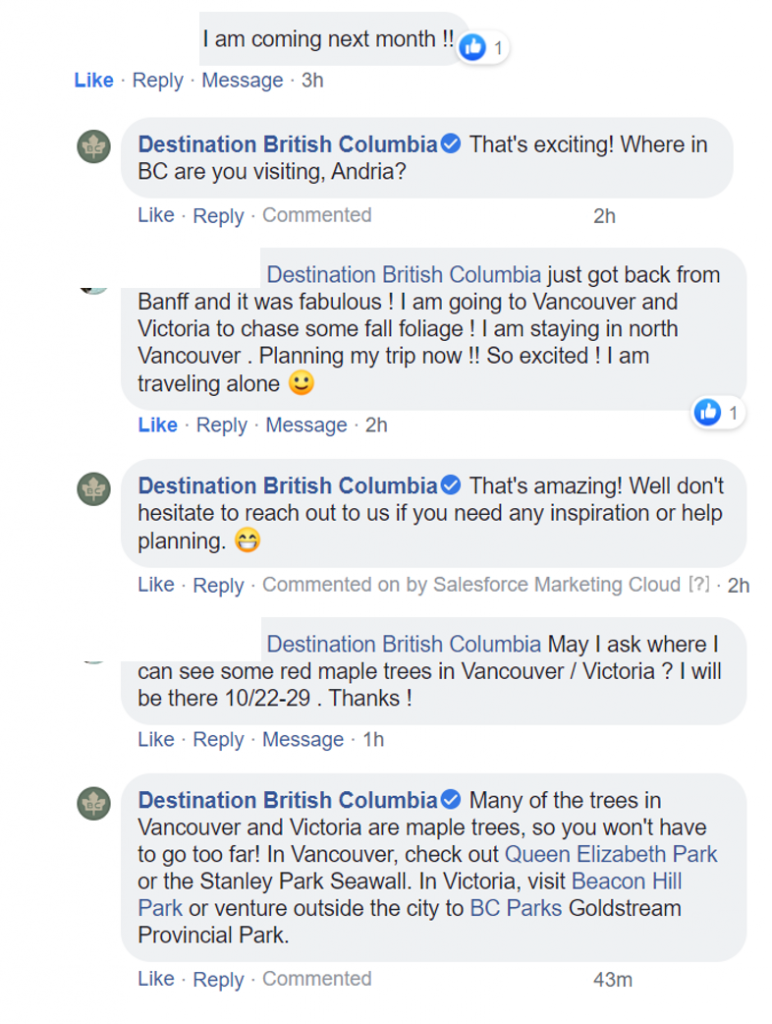
2. Build Relationships Online
When engaging with potential consumers, aim to jumpstart conversations, encourage sharing, and provide helpful trip planning advice, rather than simply pushing people to marketing material. Slowly move prospective consumers “down the sales funnel”, instead of focusing on only the result. Never present a “hard sell,” rather, have a genuine conversation and learn more about the person’s trip and interests before asking them to visit your business.
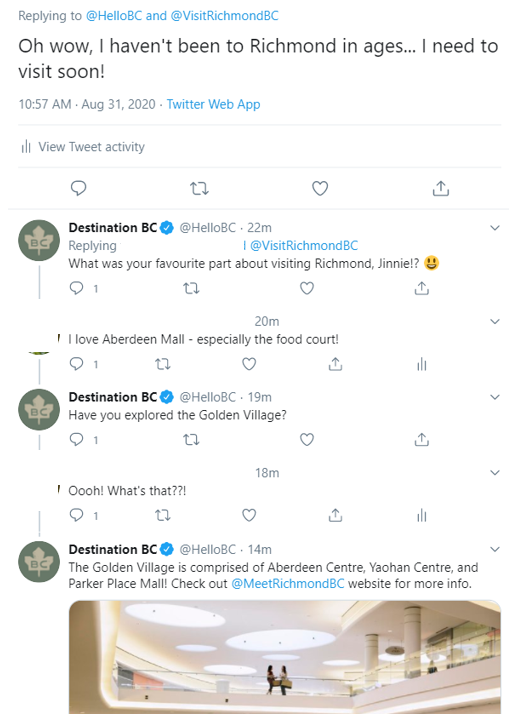

Tip: To personalize your recommendations, take a quick look at the profile of the user you are engaging with!
3. Keep it Simple
Don’t post a paragraph when a sentence will do. Shorter posts are more effective on most channels. Let visuals or hyperlinks speak for themselves and remember that everything looks longer on mobile.
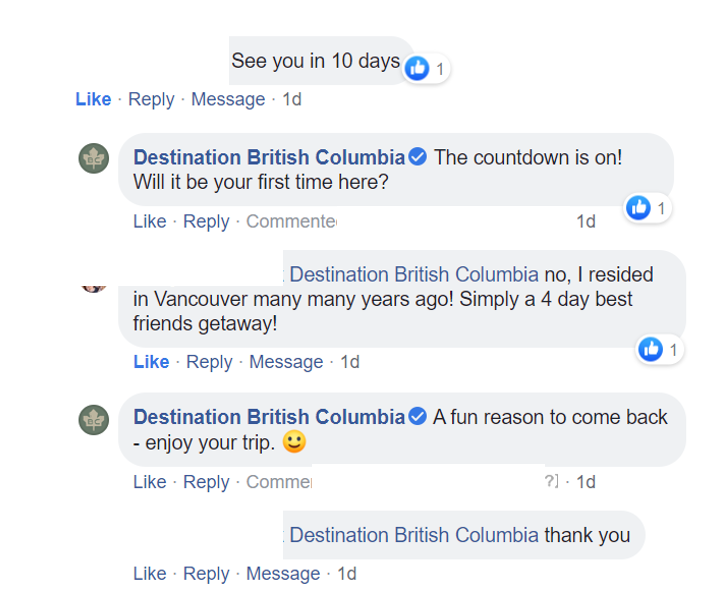
4. Provide Users with a Clear Call-to-action
Linking users to other information (e.g. Blogs, articles, etc.) can help provide a lot more information than a single, lengthy post. Providing a clear call-to-action with a link can help someone find the answers they are looking for.
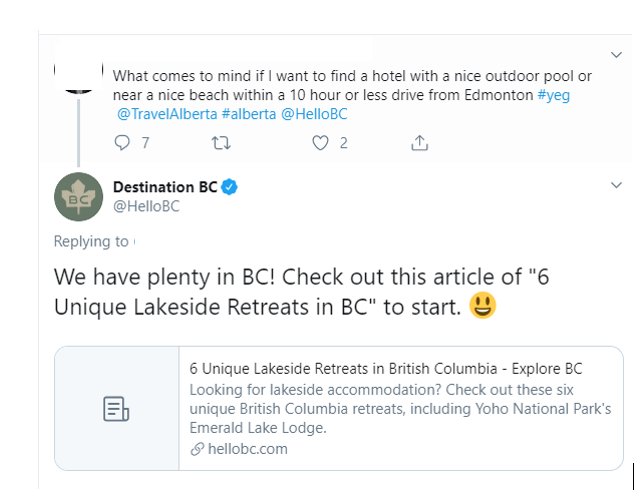
5. Ask Open-ended Questions
Asking open-ended questions can help you glean valuable insights, increase engagement, and prompt trip-planning questions. Respond quickly to show you are actively listening.
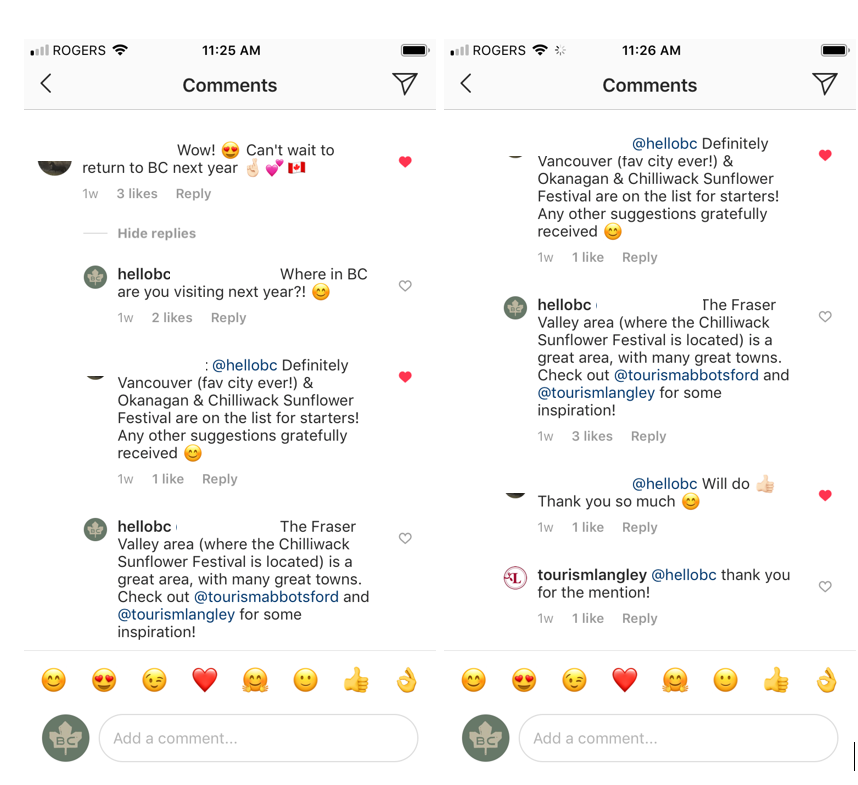
6. Encourage Others to Share their Experiences
Look for opportunities to engage with people mentioning past or future experiences with your business.
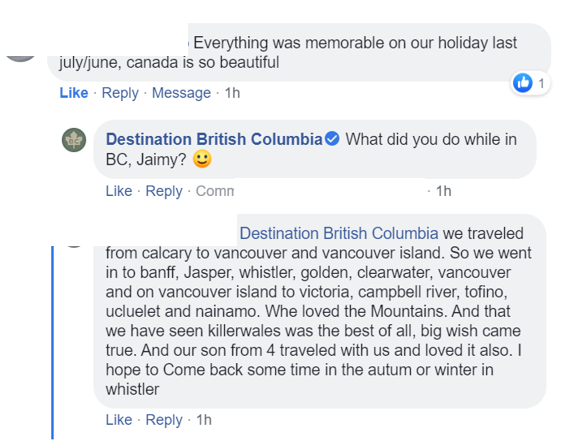
7. Consider the Broader Audience
Answering a question for one person might answer questions others have as well.
There are various ways to engage online, and there is no one right way of doing it. Experiment with what works with your audience and use your analytics to adjust the course as needed.
Using social media effectively means making meaningful connections with current and future visitors, which will serve to boost your brand and return on investment, both on and offline in the long term.



